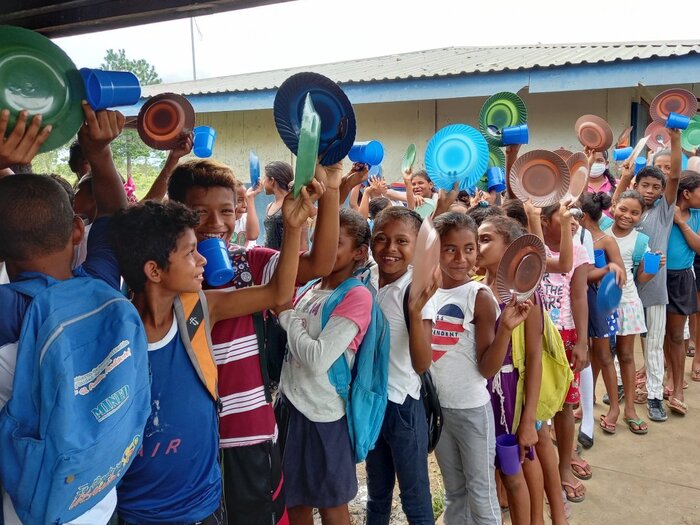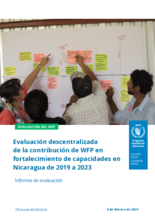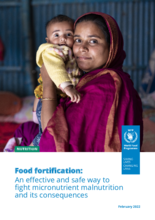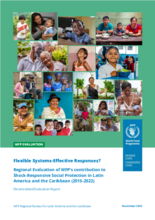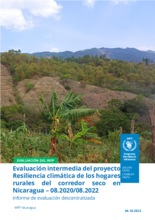Nicaragua
- 64.5%
- of people work in agriculture
- 24.9%
- of people live in poverty
- 126 out of 191
- in the 2022 Human Development Index
Nicaragua is a low-income, food-deficit country and one of the poorest in Latin America. Agriculture is the main economic activity, contributing 8.1 percent of the country's GDP.
The climate emergency fuels food insecurity. Nicaragua is vulnerable to recurrent disasters including droughts and hurricanes, which severely damage agriculture.
The State of Food and Nutritional Security report showed a 17.8 percent prevalence rate of malnutrition in the population during 2020-2022. Almost 25 percent of families live in poverty and more than 8 percent in extreme poverty, living on less than US$1.25 a day.
The World Food Programme (WFP) has been in the country since 1971. We provide food assistance and nutrition support, support livelihood restoration and sustainable market access, and build resilience to the impact of disasters. WFP also strengthens institutional capacity to develop integrated disaster risk management, social protection and food systems.
What the World Food Programme is doing in Nicaragua
-
Promoting social protection for school feeding
-
The National School Feeding Programme is Nicaragua's largest social safety net. WFP complements the programme by providing daily nutritious meals to 180,000 children in 2,500 schools. WFP also buys fresh food for the meals from smallholder farmers in cooperatives, and improves school infrastructure to allow for the storage, preparation and consumption of school meals.
-
Building climate and economic resilience for smallholder farmers
-
A comprehensive package includes information on technology for crop extraction and processing, along with training in preparation in gender inclusion, access to markets and practical measures such as the use of organic fertilizer.
-
Emergency response and early recovery to restore livelihoods
-
WFP, in collaboration with SINAPRED (National Civil Defence) provides take-home food packages to schoolchildren in emergency-affected areas and take-home rations to their families. WFP also supports the Government in collecting data on food security in disaster-prone hotspots, and provides technical assistance to institutions in disaster risk reduction and management.
-
Country capacity strengthening
-
WFP works with national institutions, mainly SINAPRED and the Ministry of Education, to strengthen the knowledge and skills of public officials and enable them to design and implement programmes to help further efforts towards zero hunger, with a focus on gender, nutrition and risk prevention.
-
Service provision on-demand
-
WFP uses its scope and expertise to offer other UN entities and institutions supply chain services. These include procurement, transport and other logistics, and technology and telecommunications including internet access, satellite phones and radios during emergencies.
Nicaragua news releases
Go to pagePartners and Donors
Find out more about the state of food security in Nicaragua
Visit the food security analysis pageOperations in Nicaragua
Contacts
Office
Edificio COBIRSA, 3er. piso, kilómetro 6 1/2 Carretera a Masaya, contiguo a Edificio Claro
Nicaragua

